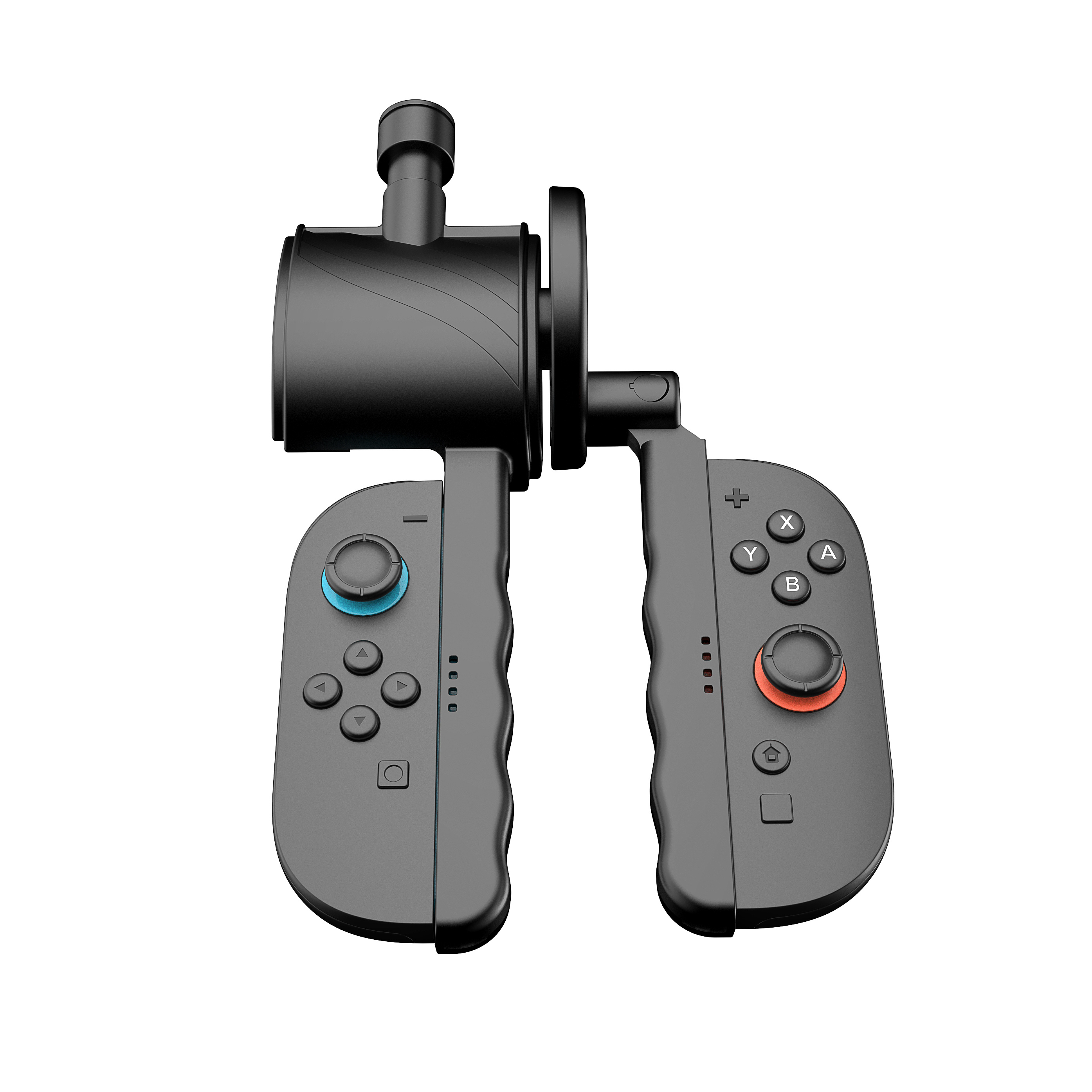language

What is a consolation game?
Time of issue:2025-05-16
Consolation game is a match played between teams or individuals who did not advance to the later stages of a tournament, often to determine final standings beyond the top spots.
Ever wondered what happens to teams after they’re knocked out of a big competition? It’s not always straight to the sidelines; sometimes they play a special match.
This brings up the question, what is a consolation game?
These games give teams that didn’t make the finals one last chance to compete. The stakes may not be for the main trophy, but they can still be important for rankings and pride.
What is a Consolation Game?
Okay, let’s talk about consolation games. You know how sometimes, in a big tournament, not everyone can win the top prize? Well, that’s where consolation games come in. Imagine you’re playing in a soccer tournament, and your team doesn’t make it to the championship. You’re not going home yet, though! Instead, you might play in a consolation game. So, what exactly is a consolation game? Simply put, it’s a game played between teams that didn’t advance to the main championship round. Think of it like a second chance to win something, even if it’s not the top prize. These games often give those teams that didn’t win a chance to keep playing and have some fun, practice skills, and maybe even go home with a small victory.
Why Do We Have Consolation Games?
Consolation games are not just a random extra game; they serve some important purposes.
The Spirit of Competition
First, they keep the spirit of competition alive. Even if a team knows they can’t win the entire tournament, the consolation game provides another chance to show their skills, test their tactics, and compete against another team. It’s much more fun than just sitting on the sidelines after Think of it as continuing your game journey, rather than it ending abruptly. The teams get another opportunity to put all of their hard work on display.
A Chance for Practice
Secondly, consolation games act as a great practice opportunity. It’s not the same as a high-stakes championship game, but it’s still a game situation where players can hone their skills, try new strategies, and improve as a team. This can be particularly helpful for younger players or teams that are still developing. It allows them to learn from their mistakes in a real game setting without the intense pressure of a final. Sometimes, it’s in these “lower-pressure” games that kids really figure something out that they can carry into future games.
Boosting Team Morale
Thirdly, these games can help boost team morale. Losing in a tournament can be tough, and it can sometimes be hard to keep the team’s spirits up. Winning a consolation game can provide a small victory and give the team a positive experience to take away from the tournament. It can be a really good boost to their confidence and make them feel like all the work they put in hasn’t been for nothing.
Fair Play and Participation
Consolation games also promote fair play and full participation. In some tournaments, if there were no consolation games, some teams might only play one or two games before being eliminated. The consolation game ensures that most teams get to play more than once, which is fairer and more inclusive. It gives everyone a better shot at experiencing the game and learning from the whole process. No one wants to travel a distance just to sit on the sidelines!
Different Formats of Consolation Games
Consolation games aren’t always organized in the exact same way. It depends on the rules of the tournament and the number of teams. Here are some common formats you might see
Simple One-Game Consolation
This is the most common format. After the first round or a certain stage of the tournament, teams that don’t advance to the championship bracket are matched up against other teams that also didn’t advance. It’s like a little mini-tournament on the side. The winners of these matches might get some kind of minor prize, or just bragging rights! It’s a straightforward way to give each eliminated team another shot.
Consolation Bracket
Some tournaments use a whole consolation bracket. This is like the main tournament bracket, but for the teams that didn’t make it to the main championship. These teams play each other in a series of matches until one team emerges as the winner of the consolation bracket. This can offer multiple opportunities to play, which is more time on the field for the participants, allowing them to fully put into practice all the skills they’ve learned.
Round-Robin Consolation
In this format, all the teams that didn’t advance play against each other in a round-robin style. This means each team gets a chance to play every other team in the group. This format is really good for maximizing playing time and can be really fun for all the teams involved. Even if they don’t win it all, everyone gets more game time.
You’ll find consolation games in many different sports. Let’s look at some examples:
Basketball: In youth basketball tournaments, after the initial games, teams that don’t qualify for the playoffs will play consolation games.
Soccer: Just like our initial example, soccer tournaments often use consolation games, particularly in youth or school leagues, or even in some international competitions.
Baseball/Softball: Similar to other sports, baseball and softball tournaments may have consolation games or brackets, where teams that lose initial games still get to compete.
Volleyball: In volleyball, after the first rounds, losing teams often participate in consolation games, so they get additional opportunities to compete.
Hockey: Hockey tournaments, too, use consolation games to provide more playing chances for the teams.
While they are very common in sports, the idea of consolation games can be found in other areas too. Sometimes in contests, competitions, and even in some academic challenges, a consolation prize or event might exist for those who don’t quite reach the top. It gives people another chance to participate and feel good about their efforts.
Academic Competitions
In academic competitions like quizzes or debate tournaments, there might be a consolation round for teams that don’t make it to the final rounds. This gives these teams a chance to continue to learn and show their skills, even if they’re not going to take home the main trophy. They might get some prizes, or just have an opportunity to engage with the material further.
Gaming Tournaments
Even in esports and gaming tournaments, you might see a form of consolation games. Especially in larger events, there can be multiple stages to determine the final winners. There could be a lower bracket for teams or players who lose early matches, where they still have the opportunity to play and win other prizes or rewards.
The Value of a Consolation Game: More Than Just a Game
So, while a consolation game isn’t the main event, it’s still super important. It teaches sportsmanship, provides extra playing time, and allows players a chance to keep getting better. It’s more than just an extra game. It helps reinforce key values in sports. It is a tool to keep kids involved, learning, growing, and having fun.
The main products include game controllers and accessories compatible with PlayStation, Nintendo, Microsoft, Android & iOS, PC and other game platforms.
Learning Sportsmanship
Playing in a consolation game teaches athletes to be gracious in defeat. It’s not easy to lose but consolation games help kids and adults alike learn to move on from a loss and focus on the present. They learn to put forth their best effort even when the stakes aren’t as high. It helps them build character and understand that sometimes, you don’t win them all, but you always have an opportunity to play and improve.
Improving Skills and Teamwork
Consolation games are a chance to continue to work on teamwork and refine skills. It might be an opportunity to try some new strategies, to work on some specific skills that need a little polish, and to see how it all works together in a real-game situation. It’s a learning experience for all the athletes, regardless of whether they win or lose. The focus can be less on winning, and more on learning and adapting.
Promoting Inclusivity
Finally, consolation games help to make tournaments more inclusive. They ensure that more people get to participate fully and experience the benefits of team sports. This can be especially important for youth sports, where participation is just as important as winning. It makes sure that most people get to enjoy the tournament, and that no one is left watching on the sidelines too long.
Consolation Games:
Consolation games, while they aren’t the highlight of the tournament, are still a valuable component of competition. They provide a chance for teams to continue to compete, learn, grow, and have fun, even when they don’t make it to the main championship. They are more than just a game, they foster fair play, develop character, and allow everyone to experience the joys and benefits of being part of a team. They are a way of saying, “We know you didn’t get the top prize, but we appreciate your effort and we want you to keep playing.”
Consolation prize
Final Thoughts
A consolation game is a match played between teams that did not qualify for later rounds of a tournament. These games offer a chance to compete after earlier losses. These matches don’t affect the main tournament standings.
The primary purpose of a consolation game is to provide additional playing time. It helps teams develop skills and strategies. So, what is a consolation game? It is essentially a secondary match designed for those eliminated from the main event
Previous
More Information
2025-05-16
Can We bring game console on a plane?
2025-05-16
How to use video game console the first time
2025-05-15


















